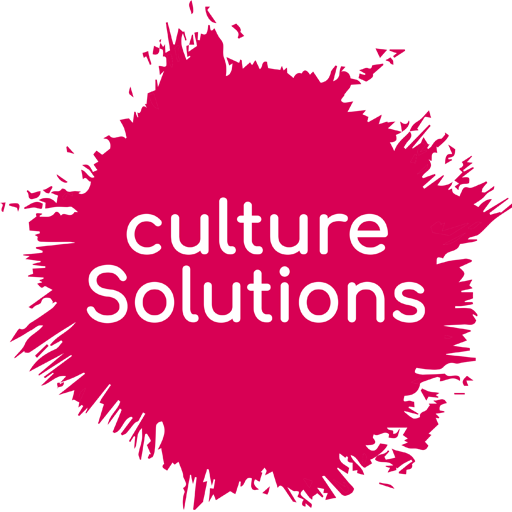Five take-aways for EU institutions and Mondiacult: Voices of Culture Global Dialogue on International Cultural Relations
By Nicole McNeilly and Gabrielle Bernoville
From 2-9 February 2022, 43 policy-makers, experts, creative professionals, representatives of cultural civil society organisations (CSOs) and academics, representing 39 global and European organisations, took part in the Voices of Culture structured global dialogue on international cultural relations (ICR). In the framework of the negotiation of a new Council Work Plan for Culture 2023-2026, this global dialogue aspired to share knowledge and good practices to gear up the EU’s action on culture in external relations.
culture Solutions collaborators Nicole McNeilly (moderator and lead writer of the Voices of Culture report) and Gabrielle Bernoville (moderator and report co-writer) reflect on the key themes discussed in the final report published by the invited high level professionals. They set out their perspectives on possible next steps, emphasising the role of the EU entities in its close partnership with CSOs and the global cultural sector – a topic made even more important in the run-up to Mondiacult.
Aims and scope of the Voices of Culture Structured Dialogue format
For many years, and even more so since the 2007 European Agenda for Culture, the cultural and creative sectors have earned their spurs as fully fledged drivers of European economies and powerful actors for recovery, resilience, human dignity, social cohesion and inclusion. The advocacy work carried out by cultural professionals, academics and CSOs played a role in making this pledge for culture in the EU.
To amplify their voices and provide them with a direct platform (a ‘structured dialogue’) with the EU institutions, the EU-funded Voices of Culture (VoC) project was launched in 2015, implemented by the Goethe institute.
Dialogue and discussion translated into a practical report on ICR
To date, and following intensive structured dialogues and subsequent sectoral collaboration, twelve different angles or topics in EU internal policies have been explored with 12 sectoral reports co-written and published by cultural actors from the European Union. Yet not only was this the first time that international cultural relations had been addressed in a VoC dialogue, the VoC dialogue in February 2022 invited stakeholders from across the world instead of just the EU. This approach is consistent with consultations held by the EU since 2012 and was the much-needed context in which to discuss inclusive and bottom-up ICR.
To help you navigate the report, here is a snapshot of what you will find and can expect from it, and what is most relevant for the EU institutions.
We have seen a proliferation of reports on fair, inclusive and decolonised cultural relations. What makes this report different?
Faithful to its pragmatic and practical approach, the report offers a comprehensive overview of the main issues at play and a hands-on set of recommendations for anyone involved in ICR and international cultural development at any level, from an artist to a director of a cultural organisation to a policy maker. A range of concrete activities – from strengthening existing ICR projects to creating new high-potential and scalable projects – were collated and ideated throughout the three days of brainstorming sessions.
The report is also a reflection on an ever-changing context in which ‘the practices and the very paradigm of global international cultural relations (ICR) must be constantly evaluated’ (pg 4). The report was written before the Russian invasion of Ukraine but that makes what it says even more pertinent: it shows how already demanding cultural relations are in peaceful times. Crisis times require all of us to be accountable for the multiple impacts of the cultural relations we develop: we should seek long-term, fair, genuine and transparent cultural relations in the world.
It is also somewhat philosophical in its advocacy: it represents a shift towards a recognition of the importance of culture as a vehicle, a process, a space through which to create inclusive relations beyond differences and borders. This is more than a small mindset shift: it represents a move away from seeing culture as a commodity and relationship-building as a short term endeavour towards increased mobility, transparency, genuine partnerships and trust.
Trust, time, space and equity: Five take-aways for EU institutions
In line with the project working methods the VoC report and recommendations on ICR were presented in a close-doors meeting with a very well-attended meeting of representatives from Directorate General EAC (Education and Culture), INTPA (international Partnerships) and the European External Action Service (EEAS). Although the discussion remains private, the key messages presented to these stakeholders were drawn from the publicly available report. We draw out five of our own take-aways for the EU institutions below.
- Don’t shy away from the topic of decolonisation and acknowledge calls for a recalibration of the partnership between the EU and partner countries, notably in Africa. A partnership that works for both cultural contexts must be co-designed. This could begin with the establishment of an intersectoral forum for the discussion of decoloniality in ICR. Call on and inspire Member States, just like professionals, practitioners, academics or decision-takers, to do more and better in this area. It is in our best interests that we all embrace the concept of decoloniality.
- Move away from short-term project-based outcomes and instead start to embrace space, time, equity, access (the four main themes of the report) as well as experimentation and flexibility in both project activities and the funding mechanisms that support them. A forum on EU financing mechanisms is recommended, and momentum emerging from the lessons learned during the Covid-19 pandemic about flexibility and local-responsiveness should be maintained.
- Have more impact through collaboration, removing silos in European activity (e.g. between DGs) internationally and working more closely in partnership with local experts to improve the position of #TeamEurope. This could be supported by the empowerment of local EUNIC clusters.
- Embrace a holistic framework to ICR, bringing in considerations of equitable access and mobility, environmental sustainability, and remove power from the funding equation to create equal partnerships. Tangible steps forward include creating a results-based approach for ICR that incorporates SDG indicators while focussing on a long-term (i.e. not project based) trajectory.
- Continue the conversation on inclusive ICR and in particular, on decoloniality, on an independent, long-term, intergenerational, sustainable and remunerated basis (ensuring equitable participation). Beyond recommending the creation of an advisory group, the details on what this could look like remain to be worked out (though watch this space).
Read more about the background to these recommendations and to find out more you can get in touch with us at culture Solutions.
Cherry on the cake: the report comprises a list of useful and handy resources pulled together by the participants: policy documents, research, commentary, good practice project examples and much more. Check them out at the end of the document!
The views expressed in this article are personal and are not the official position of culture Solutions as an organisation.

